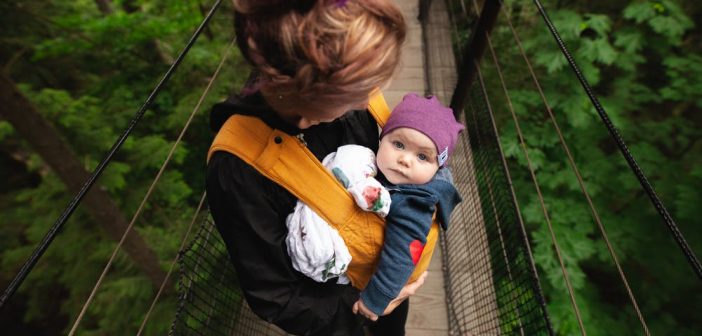https://images.pexels.com/photos/1157391/pexels-photo-1157391.jpeg
Not all car seats are created equal. As a parent, you can’t choose a baby carrier simply because you like its color and design. Each choice you make should factor in whether your child will be comfortable and safe when you use it. If you’re unsure, here’s a quick guide to using baby carriers and slings:
Know the Difference
Often, parents will buy baby equipment to help them carry their child without knowing the difference. Knowing the difference among the different types will help you decide which one is best given your usage.
Baby Carriers: These carriers, like Diono baby carriers, come with soft pads that you can wear on your front. In some versions, these carriers would come with adjustable belts that will allow you to wear your baby on your hip or back.
Baby Sling: The baby sling is made out of a soft fabric that can be put over your shoulder and worn in front in various positions.
Baby Backpacks: Often made with rigid frames, these items are exclusively worn over the back. They are best for older children who have good neck control. Most parents would prefer baby backpacks when bringing their baby during their hike.
Choosing Your Baby Carrier
Due to its versatility and affordability, it’s common for parents to go for baby carriers. If you want to buy one, go for a carrier that has a safety seal. Comfort is important, so going for a baby carrier that provides good hip support is also ideal. This is because it helps your baby undergo normal hip development as they grow, and lessens their risk of developing hip dysplasia.
To know if the baby carrier has good hip support is when the baby can straddle their legs on your body. Their knees should be spread while the thighs remain supported.
Safety Check
While it’s rare for regulating bodies to include a safety seal, some countries will have markings to indicate they have been tested for safety and quality. Ideally, you should look for the European standard EN 13209-2:2005 or the U.S. standard ASTM F2236-08. Most baby carriers come with a manual. Make sure that you understand how you can use it safely. You can look for images and instructional videos to guide you on proper usage.
Right Fit
When buying a baby carrier, do so when you’re with your baby. This will give you an idea if the carrier is the right fit for your baby. Remember, some carriers would have different sizing options. When testing the fit, check if your baby can comfortably move their arms, legs, and head, and ensure the fabric does not scratch their face.
Another thing to remember is to test whether you can put on and remove the carrier without any help. This way, you can be sure that you can manage even when you are alone with your baby.
Comfortable Wear
Padded straps for the back and waist can ensure that both you and your baby will feel comfortable. Having a waist support is ideal to distribute the weight of your baby onto your baby, reducing the pressure on the shoulders. Aside from padded straps, it also helps to factor in a style that will allow your child to feel comfortable even during the warmer months.
Once you’ve decided what type of baby carrier you want, ask about the maximum weight the carrier can handle so you can replace and upgrade as necessary.




